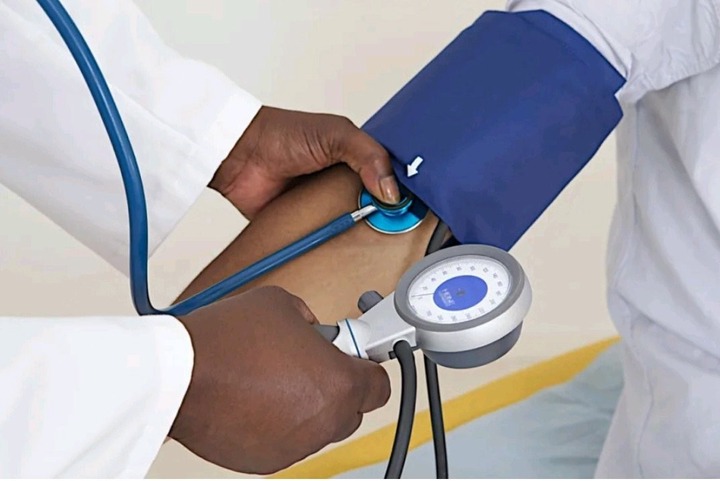
If you have high blood pressure, it’s important to be mindful of your diet and avoid certain foods that can worsen the condition. Here are some foods that can contribute to high blood pressure when eaten regularly:….CONTINUE READING
1. Sodium-rich foods: According to Healthline, Consuming excessive sodium can cause fluid retention and increase blood pressure. Limit your intake of high-sodium foods such as processed meats (e.g., bacon, sausage), canned soups, salty snacks, fast food, and pre-packaged convenience meals.
2. Added sugars: Foods and beverages with high amounts of added sugars can contribute to weight gain and increase the risk of high blood pressure. Reduce your consumption of sugary drinks, candies, pastries, and desserts.
3. Saturated and trans fats: These types of fats can raise cholesterol levels and increase the risk of heart disease, which can further impact blood pressure. Limit your intake of fatty meats, full-fat dairy products, fried foods, and commercially baked goods.
4. Alcohol: Excessive alcohol consumption can raise blood pressure and damage the heart over time. It’s recommended to consume alcohol in moderation, which means up to one drink per day for women and up to two drinks per day for men.
5. Caffeine: While the evidence is mixed, some individuals may be sensitive to caffeine, which can temporarily increase blood pressure. If you are particularly sensitive to caffeine, consider reducing your intake of caffeinated beverages such as coffee, tea, and energy drinks.
6. Processed and packaged foods: Many processed and packaged foods contain high levels of sodium, unhealthy fats, and added sugars. These include frozen meals, snack foods, packaged desserts, and sugary cereals. Opt for fresh, whole foods whenever possible.
It’s important to note that everyone’s response to specific foods can vary, and individual dietary needs may differ. Consulting with a healthcare professional or a registered dietitian can provide personalized guidance and recommendations based on your specific health condition and needs. They can help you create a balanced diet plan that supports healthy blood pressure management….CONTINUE READING